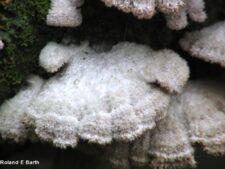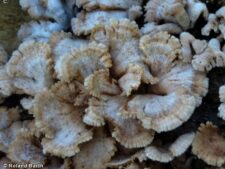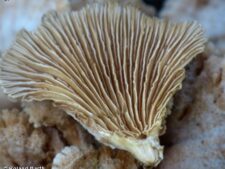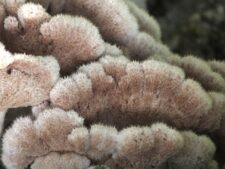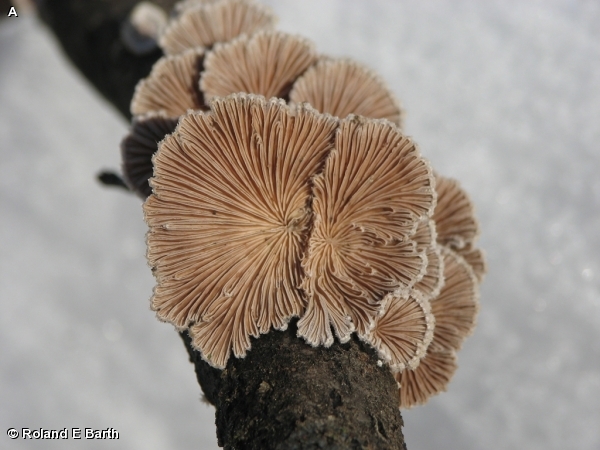
This mushroom is fan-shaped with a white-hairy cap and has white to pinkish gill-like folds (Photos B and C). Its tiny fruiting bodies lack stems and they attach themselves like tiny bracket fungi on the dead wood of deciduous trees. However, unlike a bracket fungus it has what appear to be gills on the underside. However the so called gills are really folds on the undersurface and they are very distinctively split or doubled (A). The fruiting body is about ½ inch to 1 ½ inches wide. The surface is covered with small hairs. It is white to grayish or tan. This mushroom goes from white to rosy pink.
This mushroom grows alone or more frequently clustered on decaying hardwood sticks and logs, year-round, throughout the world. It is common in Fontenelle Forest,for example, it is often seen on fallen branches in Childs Hollow.
This is probably the most widely distributed mushroom in the world. It survives loss of moisture by curling back the outer sides of its folds and rolling the cap margin inward. It revives in wet weather. This fungus can cause a human fungal disease in a few cases involving immunodeficient people especially children.
The content of NatureSearch is provided by dedicated volunteer Naturalists of Fontenelle Forest who strive to provide the most accurate information available. Contributors of the images retain their copyrights. The point of contact for this page is: Eric Scholar.

